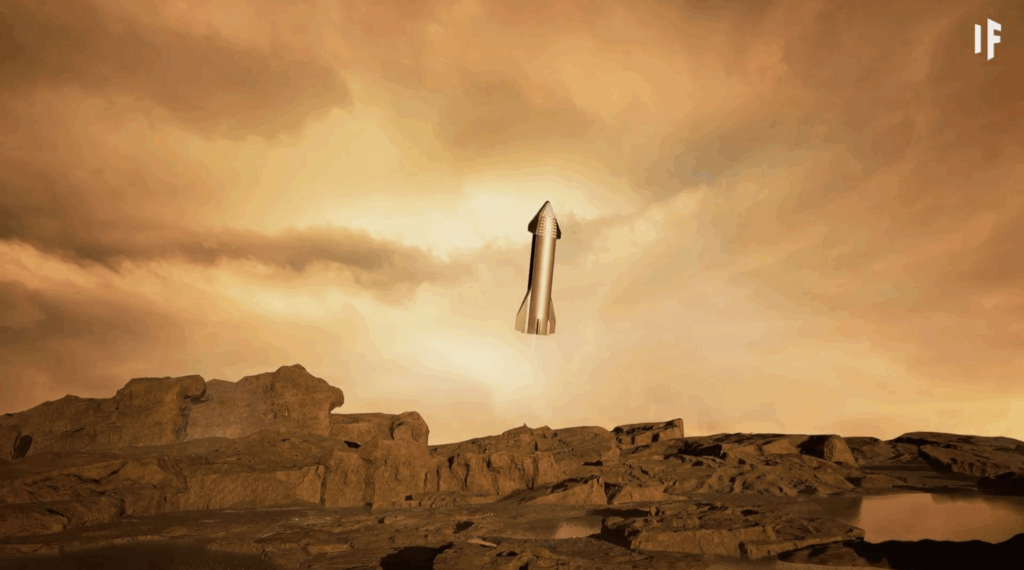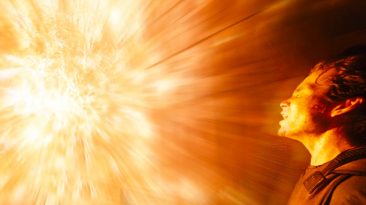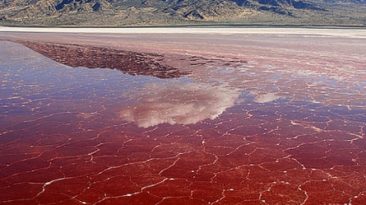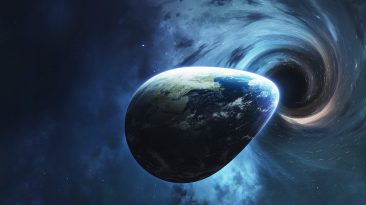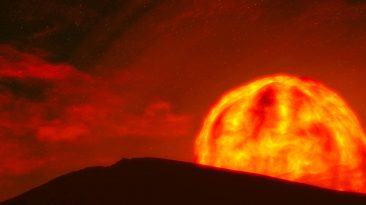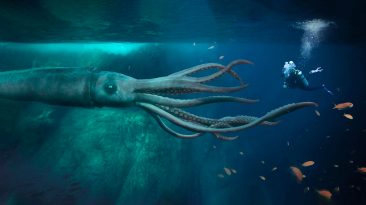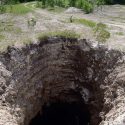If humans began living permanently on other planets, future generations would not look or function like us. Each planet’s unique gravity, atmosphere, temperature, and radiation levels would shape how we evolve. Here are eight fascinating and dramatic ways your body could change if you were born and raised on worlds beyond Earth.
Over time, these changes could make space-born humans physically distinct from those on Earth. Entirely new traits might develop, leading to different strengths, abilities, and even appearances across planetary populations.
1. On Mars: You Would Be Taller, Thinner, and Have Powerful Lungs
Growing up on Mars, with only thirty eight percent of Earth’s gravity, your body would stretch out over time. You would be taller and leaner, with less muscle and bone density.
Your lungs would adapt to extract oxygen from Mars’s thin atmosphere, and your skin would darken to protect against the high levels of solar radiation. Your eyes would adjust to low light conditions, and your tears would become thicker to shield them from dust storms. Over generations, even your heart might change shape to pump blood more efficiently in low gravity. Life on Mars would sculpt humans into a new kind of species, built for survival on a harsh red world.
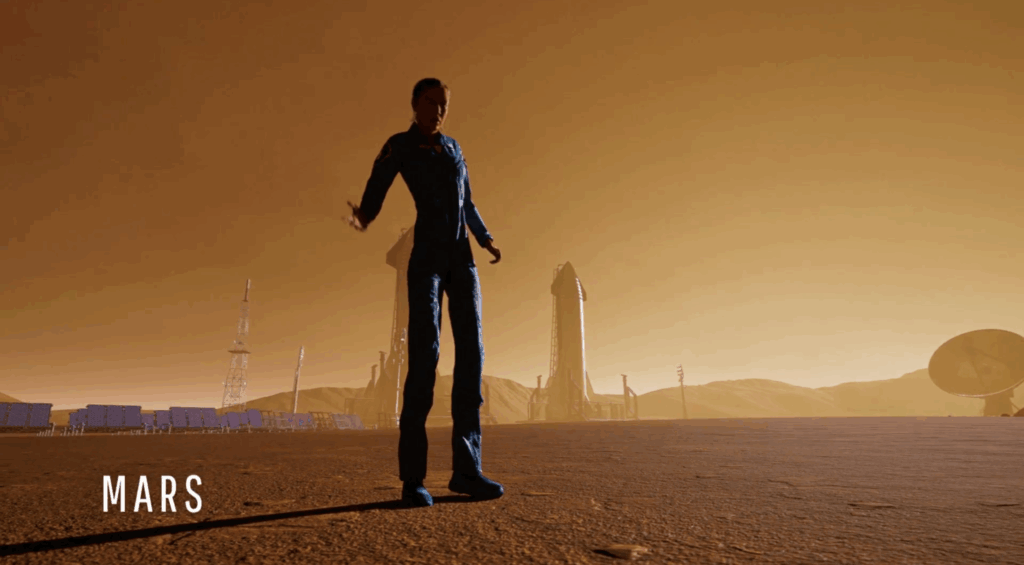
2. On Venus: You Would Have Reflective Skin and a Sturdy Build
Living on Venus, where surface temperatures are hot enough to melt metal and the atmospheric pressure is intense, your body would evolve to endure extreme conditions.
You would have a compact and strong frame and thick metallic skin to reflect heat and resist acid rain. Since the air is toxic, you would depend on external oxygen sources. Movement would be slow and energy efficient to conserve oxygen and avoid overheating. Your eyes might develop protective lenses to withstand the glare and corrosive air. Even your organs could evolve to function under constant pressure and heat, transforming you into a true survivor of a hostile world.
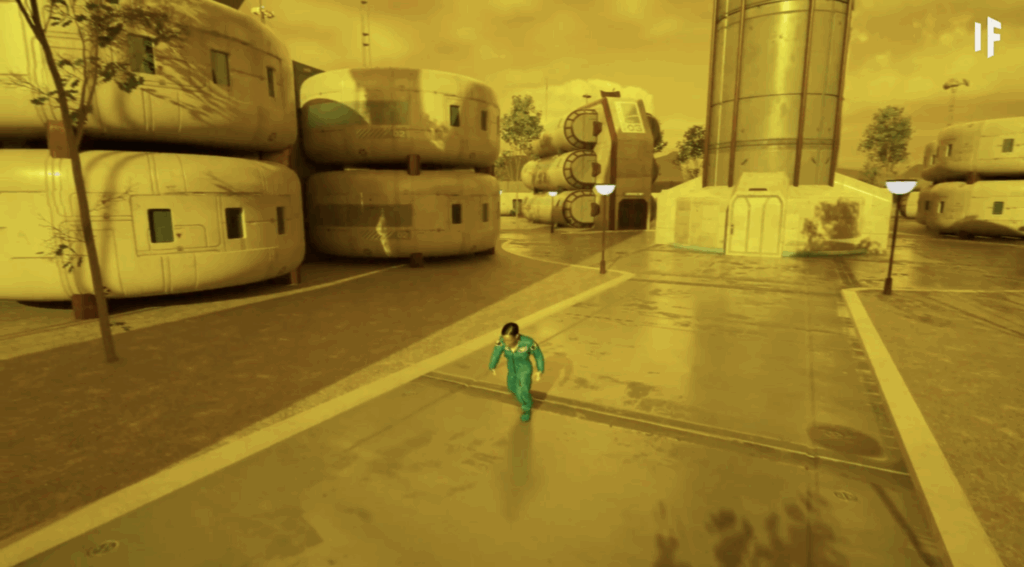
3. On Mercury: You Would Be Insulated and Radiation Resistant
Mercury experiences extreme heat during the day and freezing cold at night. Your body would need an inner layer of insulation beneath your skin to survive. A layer of fat would help retain warmth, while longer limbs would assist with movement.
Your cells would be highly resistant to solar radiation. To breathe, you might develop a new organ that could extract oxygen from minerals you consume, similar to how plants perform photosynthesis. Your skin could shift color throughout the day to reflect heat or absorb warmth as needed. Living on Mercury would require constant adaptation to one of the most extreme environments in the Solar System.
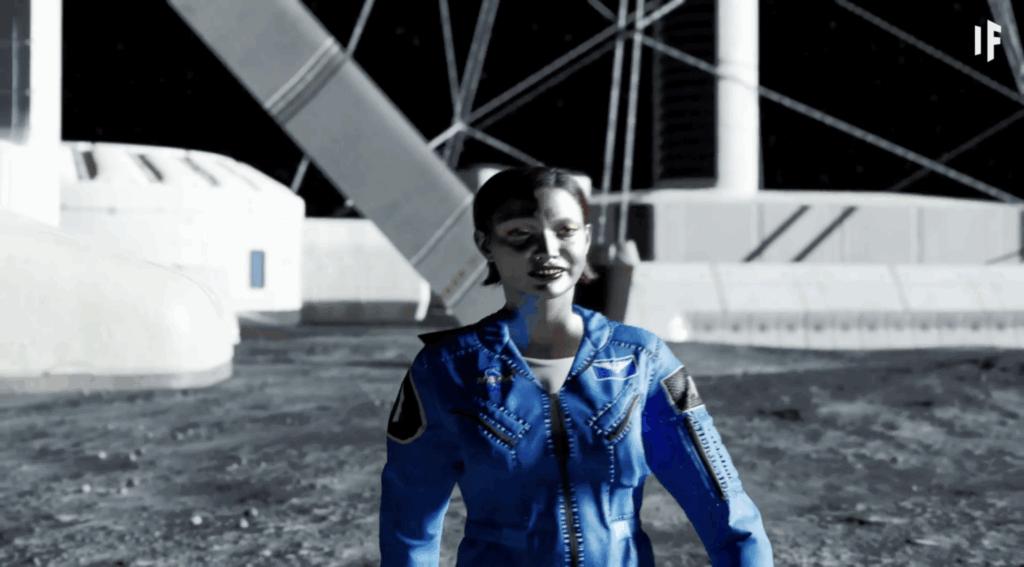
4. On Jupiter: You Would Be a Floating Being of Gas
Jupiter has no solid surface, so you would float through thick clouds of hydrogen and helium. Your body would be compact and muscular to withstand pressure, with internal gas pockets to help you stay aloft.
Your skin would darken to protect against radiation. Since there is no oxygen, you would need artificial systems to breathe or evolve in an entirely new way that does not rely on oxygen at all. You might develop a way to absorb energy from Jupiter’s magnetic field or convert chemical elements into fuel. Life here would push biology to its limits, creating a form unlike anything seen on Earth.
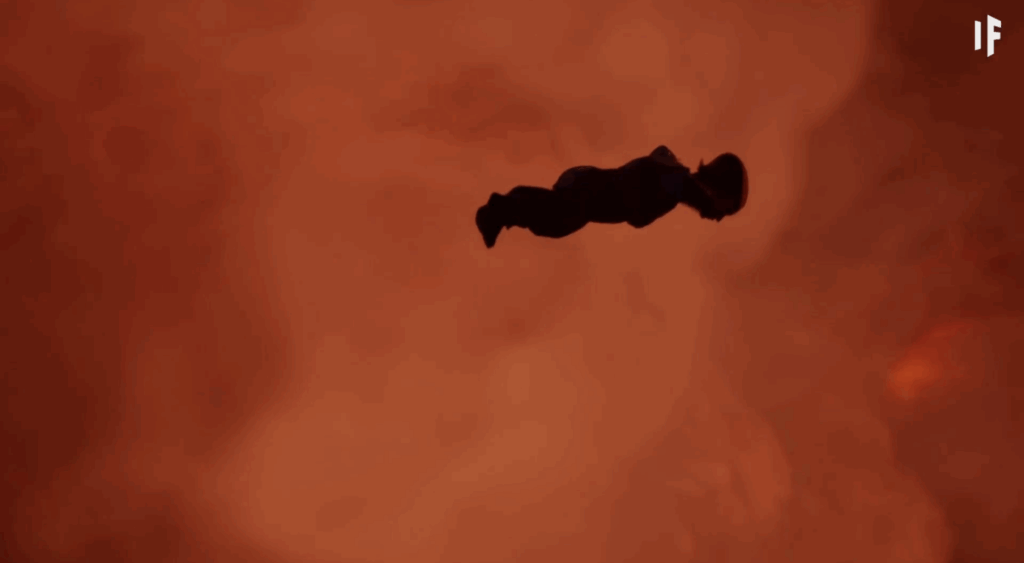
5. On Saturn: You Would Need Oxygen Creating Organs
Saturn, another gas giant, offers similar challenges as Jupiter. However, you might evolve organs capable of creating oxygen by processing water vapor or ammonia. You would be short and strong, with skin that might glow faintly to help you see through dense atmospheric clouds. This ability would make you slightly better suited for life on Saturn compared to Jupiter.
Your body could also develop sensitive pressure sensors to navigate shifting gas layers. Communication might rely on vibrations or light pulses, since sound would travel differently in such a dense, swirling atmosphere.
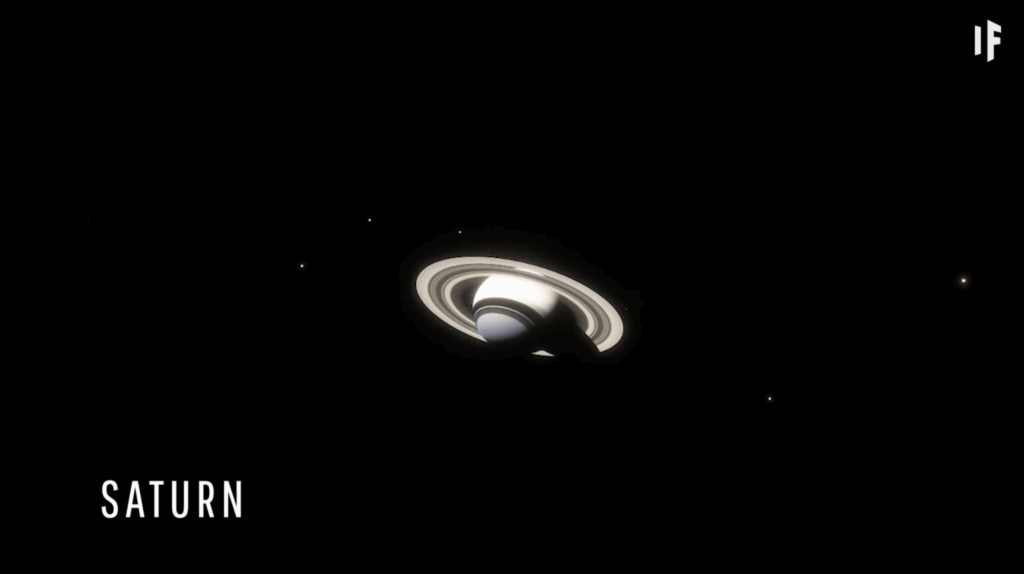
6. On Uranus: You Would Be Compact and Blue Skinned
Uranus is one of the coldest planets, with temperatures dropping far below any on Earth. Your body would be compact with a thick outer skin to trap heat and protect you from radiation.
The blue color of your skin would provide some additional shielding. Breathing would be impossible here, and the presence of hydrogen sulfide would make the air smell like rotten eggs, adding another layer of danger. You might develop a slow metabolism to conserve energy and survive in the frigid environment. Specialized sensory organs could help you detect subtle shifts in temperature and gas levels to navigate safely.
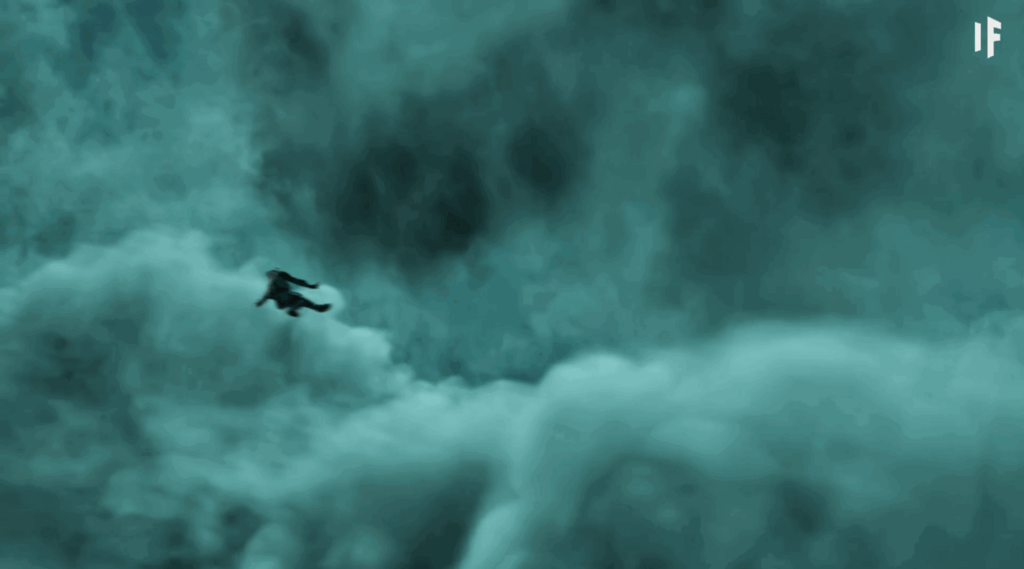
7. On Neptune: Similar Adaptations Without the Odor
Neptune is nearly as cold as Uranus, so your body would need the same thick skin and radiation resistance. You might also develop gills or rely on oxygen packs to breathe. Unlike Uranus, Neptune lacks the strong sulfur odor, but it remains a very hostile place with no solid surface and freezing clouds of gas and ice.
To survive the powerful winds and storms, your body might become low to the ground with a wide, stable shape. Vision could shift toward detecting heat or movement, helping you navigate the planet’s dim and turbulent atmosphere.
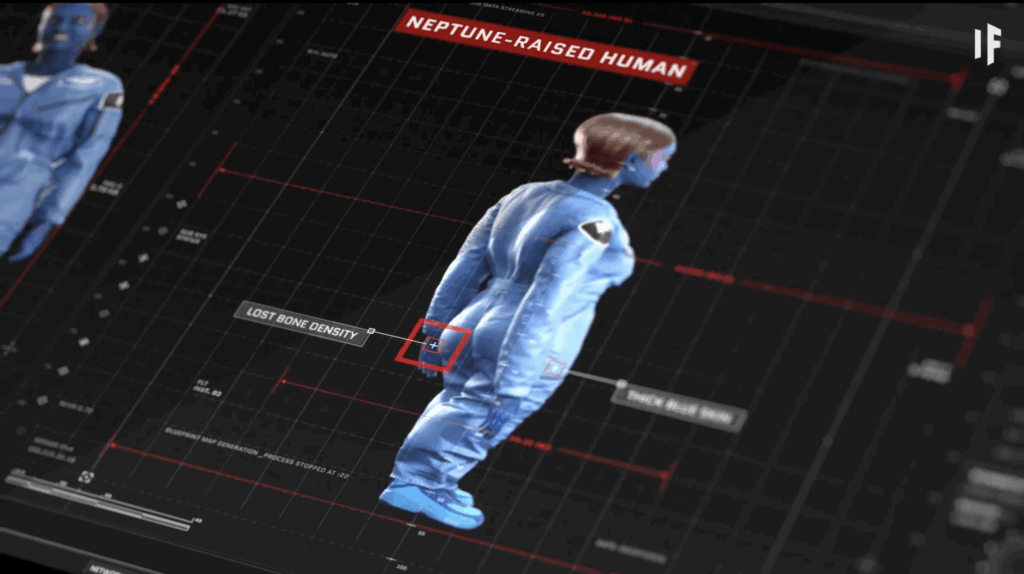
8. On Titan: A Hopeful Alternative
Titan, one of Saturn’s moons, could be one of the most promising options. It has a thick atmosphere and lakes, although they are filled with methane rather than water.
If born here, you might evolve to use methane as an energy source or develop systems to convert it into breathable air. Your eyes would adapt to low light, and your lungs and blood chemistry would be very different to survive the cold and chemical environment. Your skin might become rubbery and airtight to retain heat and block toxins. Over time, even your metabolism could shift to run on entirely different chemical reactions than those used on Earth.
